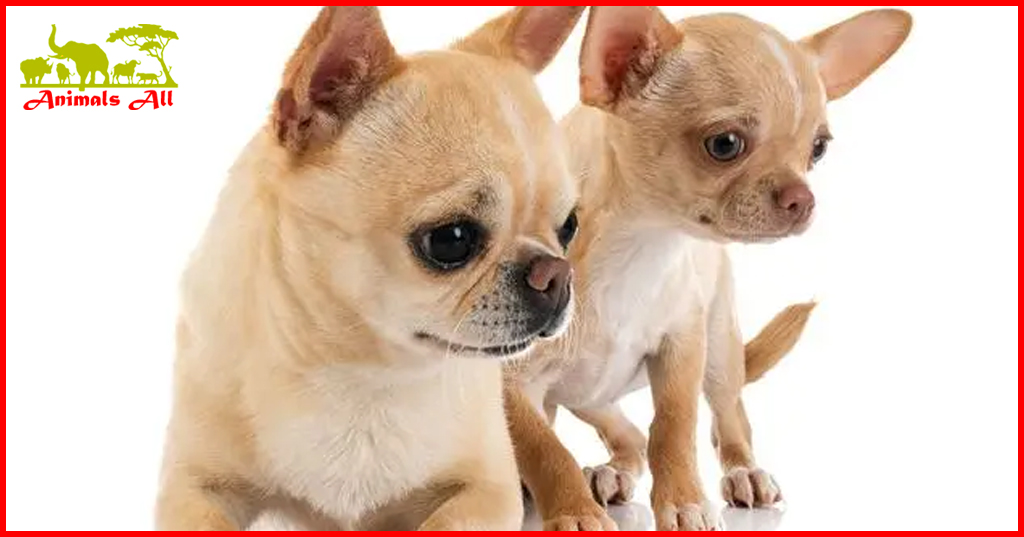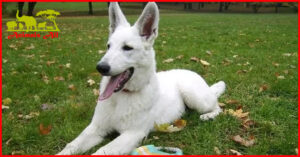
Chihuahua puppies Care Guide: From Beginner to expert
Chihuahua puppies are small in size but have a distinct personality. They live an average of 12-20 years and require proper socialization and training. Care needs include combing, bathing, checking ears and eyes, and regular brushing. Chihuahuas are suitable for empty nesters or families with older children, and they need exercise to stay healthy.
Recognized as the world’s smallest dog, the Chihuahua may be small in size, but it has a very colorful personality. In this guide, you will learn what the Chihuahua is really like. Chihuahuas are fun and playful, but more importantly, they are really funny.

chihuahua puppies lifespan
Many people ask, “How long do Chihuahuas puppies usually live?” While there is no definitive answer, they are generally a very healthy breed and can live a long and happy life, with an average lifespan of between 12 and 20 years. But you never know if your Chihuahua will live longer than Spike (the world’s oldest dog) who lived to be 23 years old.

Like other small dog breeds, Chihuahuas mature quickly, usually reaching full size around 9-12 months of age. They are generally considered senior dogs around 11-12 years of age. While many Chihuahuas remain in good health well into their senior years, it’s important to note that your Chihuahua may live for many years after they earn senior dog status, so their care needs may change to keep them healthy and happy.

Chihuahua Temperament and Personality Traits
Although every dog is unique, there are still some commonalities you can expect to see in your Chihuahua. Although Chihuahuas are a great choice for first-time dog owners, they are prone to separation anxiety and can be protective and very noisy if not properly socialized.

hrives in a household where someone is always around, and if there are times when you need to leave your Chihuahua alone, you should gradually increase this time while providing plenty of toys and distractions to help reduce his anxiety.
Socializing family life
To minimize reactivity, all dogs should be properly socialized and trained from a young age. Expose them to the world as much as possible, whether that’s new sounds and smells, new dogs, or people outside of their immediate family.
All of these experiences will ensure that they become well-rounded pets that are able to act appropriately in a variety of situations. Don’t forget that Chihuahuas are very small dogs; if they feel threatened, they may feel they have no choice but to lash out to protect themselves, which is why proper socialization and training is key.
Fun, independent, caring
They love to be the center of your attention, but when it comes to training, Chihuahuas are an independent small breed that likes to do things at their own pace. With this in mind, it is recommended that you start training from four months old to ensure they become a well-rounded pet.
Even though Chihuahuas are considered pet dogs, they also need to be kept active and busy. They love to play, whether it’s sniffing out their favorite yummy treats or toys, spending time figuring out a new puzzle toy, or learning a new trick. When they’re done playing, their favorite thing to do is snuggle up with their owners for a nap.
When Do Chihuahuas Stop Growing?
On average, Chihuahuas stop growing between 9 and 10 months, but they may continue to gain small amounts of weight until 12 months of age, when they reach adulthood.
What is the size of an adult Chihuahua?
An adult Chihuahua can be 15-25 cm tall and weigh between 1-3 kg. There is little or no size difference between male and female Chihuahuas. Because of their small size, they may be more suitable for empty nesters or families with older children.
External features of Chihuahua
Like other dog breeds, Chihuahuas vary in color, coat type, and head shape, making each dog unique in his or her own way.
Chihuahua Puppies Colors
The most common colors for Chihuahuas are black, brown, cream/white, fawn, and red. Chihuahuas are often a single color or a mix of two colors, such as black and white.
Types of Chihuahuas
Short-haired Chihuahua: The coat is short and flat and does not require much grooming.
Long-haired Chihuahua: Long, silky fur covering the body and ears, with a ruff around the neck. Weekly grooming recommended
Apple Head Chihuahua: The head is broad and round, shaped like an apple, with a short nose and chin.
Deer-headed Chihuahuas: Their facial features are slanted, similar to a deer. Their heads are thinner and narrower than those of the Apple-headed Chihuahuas.
Chihuahua’s Exercise Needs
Although Chihuahuas are smaller and don’t require as much exercise as larger dogs, they still need exercise to keep their bodies healthy and their minds active. Exercise should be tailored to the dog’s age, needs, and personality.
Exercising a Chihuahua Puppies
Before three months of age, short bursts of play help build your baby’s stamina without overtaxing developing bones and muscles. Try hiding your baby’s favorite snack or toy in the room to let him smell it, play fetch, or play educational games to keep him busy.
When your puppy is old enough to go for a walk, it is important to slowly build up their endurance with short walks and then gradually increase the length or distance of your walks. Be sure to let them sniff and explore on your walks as this also provides the all important enrichment. Due to their delicate back and neck and their small size, it is best to use a harness rather than a collar when walking.
Training an Older Chihuahua
Generally speaking, senior Chihuahuas, like other breeds, require less exercise, but it is still important to keep them active so that they can stay healthy, reduce the risk of obesity and related health problems, and ensure healthy joints and muscles.
Chihuahua Care Needs
Whether a long-haired or short-haired breed, a Chihuahua should be groomed weekly to keep its coat healthy and looking its best. Monthly bathing is also a wise move, not only to keep it clean. But also means that problems such as fleas, skin problems or lumps and bumps can be seen more easily.
You should check their ears and eyes regularly, watching for signs of infection. Such as redness, swelling, odor, or wax discoloration. Be sure to check for pain and irritation, or excessive licking of the paws, which could be signs of allergies.
Chihuahuas should have their teeth brushed regularly, just like humans. To keep their teeth and gums healthy, their breath fresh, and to prevent tartar buildup. Small dogs especially need regular brushing. Because their mouths can become crowded, leading to plaque buildup, which can cause a host of other health problems.
We hope you’ve enjoyed our Chihuahua Owner’s Guide. Now you have the confidence to give your Chihuahua the long, happy and healthy life they deserve.


One thought on “Chihuahua puppies Care Guide: From Beginner to expert”
Comments are closed.